Editor’s note: This is final installment of an 8-part series looking into issues the City of Portland faces. Click here for the full series, send us your comments to isportlandover@koin.com
PORTLAND, Ore. (KOIN) — It’s easy to say “Don’t worry, we’ll recover quickly.” But it’s hard to ignore the destruction and vandalism that continues to eat away at Portland and its reputation. It’s hard to see a once-vibrant downtown wounded, still boarded up and vacant.
And it’s difficult to be optimistic when it seems everywhere you look your eyes land on graffiti, trash, garbage, filth. How does Portland recover when it’s this bad?
Red tape
“Well, we are dying,” said former Mayor Sam Adams. “We will cut through the red tape or die trying.”

Adams is now the Trash Czar, the man in charge of digging Portland out from under the tons of garbage choking the city.
“We’ve got an enormous task ahead of us so we cannot afford to have disconnected department and governmental efforts to clean up the city or red tape standing in the way,” Adams said.
There’s a lot of red tape to cut through.
Unlike almost every other major city, Portland has no city-wide sanitation service. More than a dozen departments and agencies are involved. It is a governmental garbage mess that wasn’t a priority before the pandemic.
Now it’s a disaster.
Trash in one spot is PBOT’s problem. Filth and debris in another spot is TriMet’s job. The garbage and human waste next to the homeless camp is Metro’s responsibility.
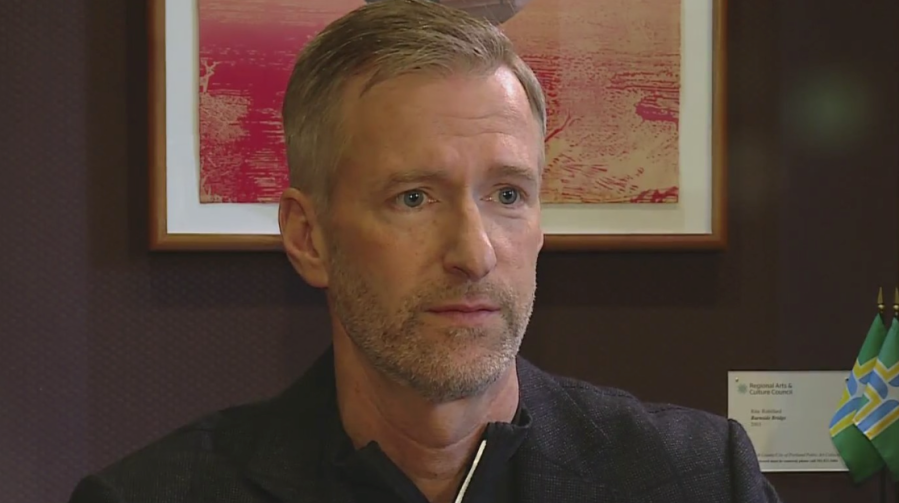
Asked about the graffiti and filth along the roadways leading into the city, Mayor Ted Wheeler said, “That’s not the city. That is the state. Those are ODOT right-of-ways and that’s their responsibility.”
When you’re trying to clean up Portland, it’s easy to pass the buck.
Adams is already cutting through the bureaucratic mess. He’s working with ODOT and other agencies, organizing business groups, volunteers, community leaders to come together to just get the job done.
The phenomena of trash
“I have never seen the trash problem this bad,” said Chris Carico, the head of SOLVE. “I’m a native Oregonian. I was born at Good Sam and in all my years here I’ve never seen anything like it.”
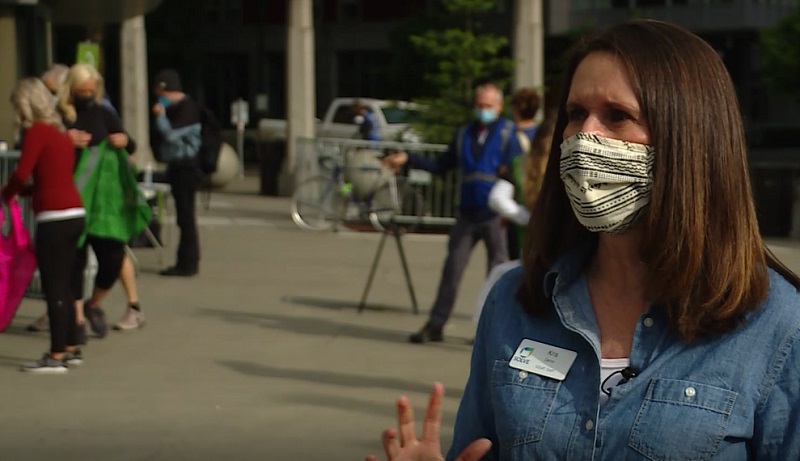
Carico has mobilized hundreds of volunteers and groups to meet the challenge and working with Adams as a key part of the solution.
It’s overwhelming. Once trash piles up it attracts more trash.
“There’s another phenomena happening right now with people dumping their household trash in encampments of the homeless,” she said. “So once again you see where people are littering because there’s already trash.”
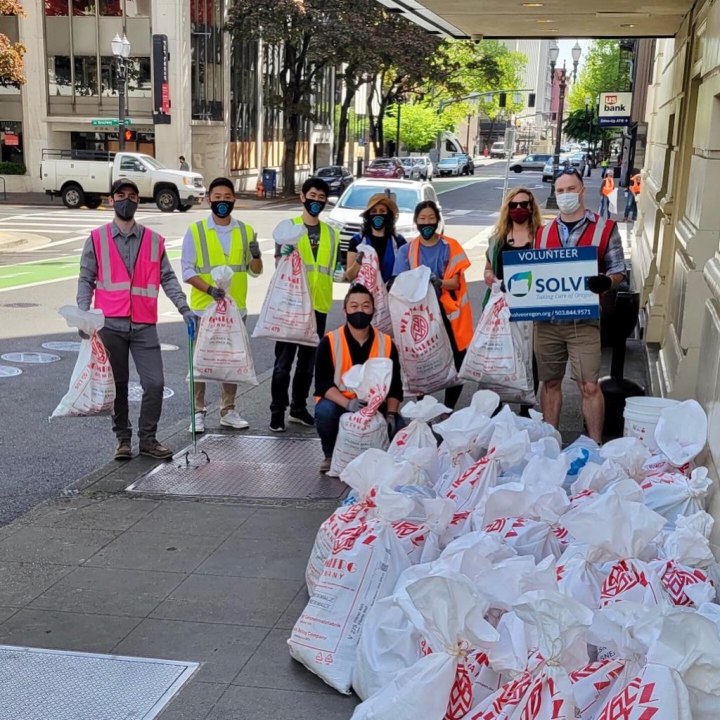
A company contracted by Metro to cleanup garbage sites is required to sift through every pile, every bag, checking for used needles and biohazards. It’s not the kind of work well-meaning volunteers are equipped to do without training and precautions.
“It’s got to be a staff-led event because we are the ones that know what we are doing,” Carico said. “We are discouraging volunteers from going out on their own for some of these areas that are a little bit rough.”
Trash can be picked up and the results are instantly seen. But the long-term damage to Portland’s downtown can’t be undone quickly. It’s difficult to bring boarded up businesses back and make people feel safe again.
Portland’s tarnished reputation
How do you restore a city’s heart, its reputation?
“Some people think the solution to a bad reputation is a public relations campaign,” said economist Bill Conerly.
Conerly wrote a scathing article about Portland in Forbes Magazine earlier this year titled, “Death of a City.”
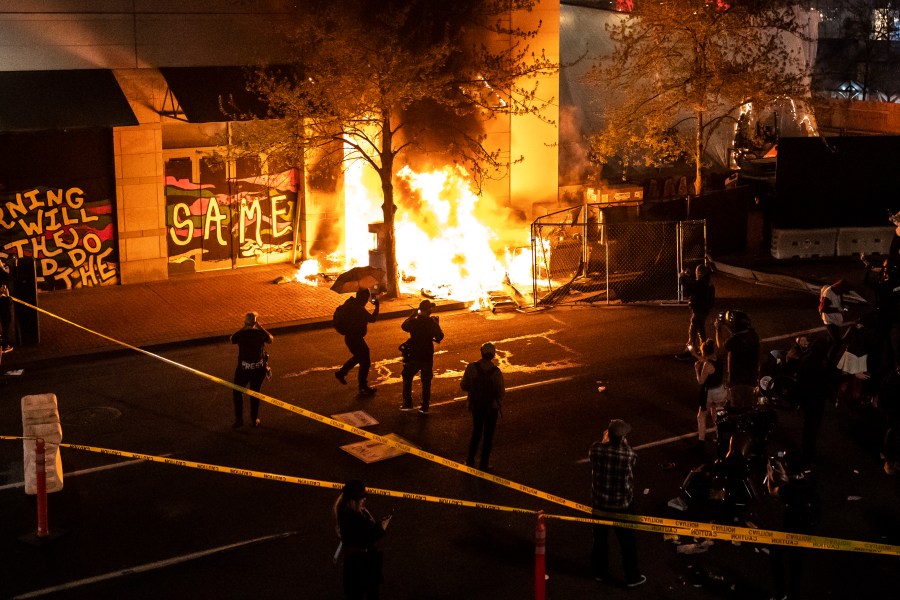
“The solution to a bad reputation is to stop doing the things that gave you a bad reputation,” he said. “Portland needs to address these really significant issues.”
The issues include ongoing vandalism from repeat offenders. Wheeler recently took a firmer stand on arrests and put pressure on Multnomah County DA Mike Schmidt to follow through with prosecutions.
Adams agrees with Mayor Wheeler’s tougher stance.
“This is about stopping self-described anarchists who just last week said, ‘Maybe we should, you know, start another fire inside the Multnomah County Courthouse,'” Adams said. “This group of self-described anarchists with their quote-unquote direct action is a code word for ‘destroy property.’ That’s a crime. And our job is to stop that crime and to prosecute, to arrest and get the DA to prosecute those that are guilty of it.”
Time to re-think downtown Portland
Jim Mark heads up Melvin Mark properties. His family has been in business 75 years owning, operating and managing buildings, many in the downtown core. His buildings have been damaged. They’ve been boarded up. He’s waived rent for the last year for many of his tenants.
But he continues to invest in downtown Portland and remains optimistic.
“Protests and violence over the past year has put us in a very difficult spot and it’s going to take some time to get it back,” Mark said. “I think leadership comes from all of us. So we’re all responsible for where our future is in Portland.
“I’m not quite on the ‘Let’s blame the mayor or let’s blame the council.'”
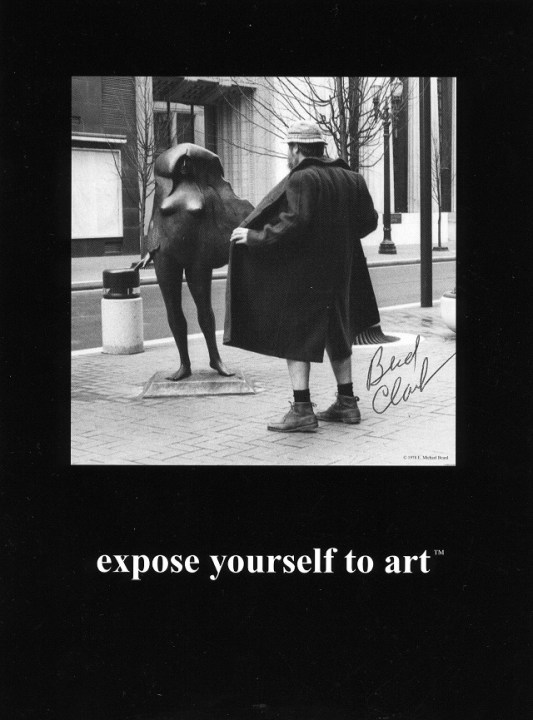
If Portland wants a last recovery, Mark said it may be time to re-think the downtown like the city did in the 1970s and 1980s — a time when downtown Portland was a model other cities admired and copied.
“Portland did have to reinvent itself. It had to give people a reason to come down, whether it was retail or just the urban environment,” Mark said. “We’ve got to re-think the way that works again.”
Can Portland work again? Can the city did out from the current mess? Can it recapture the spirit and drive that made Portland such a special place to live, to raise families, to grow businesses, to dream?
Or is Portland over?
“Absolutely not! Portand is not over,” Carrico said. “We’re still a wonderful community. Everytime I’m out at an event and I see my community members, my neighbors, it gives me hope everyday.”
Sam Adams, former mayor and currently part of Mayor Wheeler’s team, also believes things will turn.
“Portland is not over if people lean in to helping to recover. It takes every single one of us.”